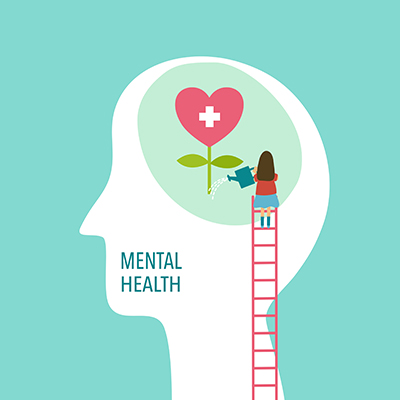Medicare in desperate need of more mental health providers, who stand ready to help
Congress should pass the Mental Health Access Improvement Act, legislation that, nation-wide, would make over 200,000 licensed mental health counselors and marriage and licensed family therapists nation-wide, eligible to treat seniors.
Posted on December 16, 2021
 The COVID-19 pandemic continues to have a massive impact on Americans’ mental health. Another related crisis will worsen in the short term and have profound implications going forward: Older adults in America are facing a mental health crisis due to lack of access to Medicare providers.
The COVID-19 pandemic continues to have a massive impact on Americans’ mental health. Another related crisis will worsen in the short term and have profound implications going forward: Older adults in America are facing a mental health crisis due to lack of access to Medicare providers.
Currently, licensed marriage and family therapists and licensed mental health counselors are qualified to provide counseling services and are already an integral part of the mental health-care delivery system in the U.S. All 50 states issue these licenses. These professionals are recognized as eligible providers by Medicaid and private insurance plans.
Both licensed mental health counselors and marriage and licensed family therapists are highly trained to diagnose and treat mental disorders including anxiety, depression and trauma. Nevertheless, these practitioners are sidelined in the Medicare program because of antiquated laws and regulations. To date, Congress has failed to designate these licensed counselors as eligible Medicare providers, preventing them from helping older adults and families through the program.
The solution is simple: Congress should pass the Mental Health Access Improvement Act (H.R. 432 and S. 828), legislation that would make over 200,000 licensed mental health counselors and marriage and licensed family therapists eligible to treat seniors. The Mental Health Access Act would allow these counselors to bill Medicare for medically necessary behavioral health services in order to treat seniors and individuals with Medicare-approved disabilities.
Older adults are extremely vulnerable to the mental health impacts of the COVID-19 pandemic. The Centers for Disease Control and Prevention estimates that 20% of adults over the age of 55 are suffering from mental health issues. Millions more likely go undiagnosed.
The National Academy of Medicine has found that fewer than 40% of older adults with mental health disorders receive treatment. The stress and loneliness caused by the pandemic are driving up rates of depression and anxiety among older adults, and Medicare needs thousands of new providers to meet this unprecedented need.
Medicare enrollment is expected to skyrocket in the coming years, with 80 million Americans projected to be in the program by 2030. This growth will further burden an already overtaxed system that is failing to provide mental health services to its beneficiaries. The pandemic has hastened this outlook.
We need many more mental health providers to be made available to see Medicare beneficiaries. Access to treatment for Medicare beneficiaries is especially lacking in rural areas. Over 125 million people in the U.S., more than one-third of all Americans, live in what are called mental health professional shortage areas, according to the Health Resources and Services Administration.
Licensed marriage and family therapists and licensed mental health counselors are much more likely to be in these rural areas than any other practitioner. According to the Washington, Wyoming, Alaska, Montana, Idaho (WWAMI) Rural Health Research Center at the University of Washington, there are twice as many licensed marriage and family therapists and licensed mental health counselors in rural counties as social workers, six times the number of psychologists, and 13 times the number of psychiatrists. About one-fifth of Medicare beneficiaries live in rural areas, and the lack of access to mental health providers is leaving them with nowhere to turn.
Together, the licensed mental health counselors and marriage and family therapists make up 40% of the mental health workforce. Adding these licensed counselors and therapists as Medicare-eligible providers would go a long way in addressing the shortages in Medicare’s mental health workforce and preparing for increasing demand for these services from Medicare beneficiaries in the future.
Congress should pass the Mental Health Access Improvement Act.
Blake Edwards is the behavioral health director for Columbia Valley Community Health in Wenatchee, and a licensed marriage and family therapist.
What can YOU—the viewer do about it?
Counseling Washington is urging you to care enough to take action and contact your elected officials – USA.gov.
Every American has a representative for their district, in the House of Representatives, and two Senators for their state. To contact them you need to know your congressional district. The above site ask only for your state and zip code and will give you the name of your congressional representative--click the name for contact information.
Tell your Senator and congressman.
“Currently, licensed marriage and family therapists and licensed mental health counselors are qualified to provide counseling services and are professionals recognized as eligible providers by Medicaid and private insurance plans.
“Both licensed mental health counselors and marriage and licensed family therapists are highly trained to diagnose and treat mental disorders including anxiety, depression and trauma. Nevertheless, these practitioners are sidelined in the Medicare program because Congress has failed to designate these licensed counselors as eligible Medicare providers, preventing them from helping older adults and families through the program.
“I am asking you to support and vote for the Mental Health Access Improvement Act (H.R. 432 in Congress and S. 828 in the Senate), legislation that will, nationally, make over 200,000 licensed mental health counselors and marriage and licensed family therapists eligible to treat seniors. The Mental Health Access Act would allow these counselors to bill Medicare for medically necessary behavioral health services in order to treat seniors and individuals with Medicare-approved disabilities.”
SEE ALSO:
More Mental Health Articles
Sexual Bias Articles
Race Relations Articles
How Drugs and Alcohol Affect the Brain and Body
WA. Counselor Directory: find a therapist near you
How helpful is this web page to you?
(and how can we can improve this page for you?)
not helpful
very helpful
Other Articles
Basic facts about mental health and treatment in Washington state
The Mental Health Project is a Seattle Times initiative focused on covering mental and behavioral health issues. It is funded by Ballmer Group, a national organization focused on economic mobility for childr... read more
Telemedicine is here to stay
It’s hard to imagine that the devastating pandemic we’re living through could possibly have a silver lining, but I think I’ve found one: telemedicine. Traditionally, health care has bee... read more
Two Research Reports: on Health Related Issues
Relationship between Sleep Quantity and the Risk of Dementia and Possible relationship between Use of NSAID Painkillers and Risk of Erectile Dysfunction (ED)
Less Sleep, higher dementia risk “Doctors have long known that dementia patients often suffer from insomnia. What hasn’t been clear is whether getting insufficient sleep is a symptom of... read more
Therapy During a Pandemic
Webmaster comment: A few weeks ago, I had trouble sleeping. With the stay-at-home orders from governors and the president, and the social-distancing movement saying to stay 6 feet apart, to... read more




